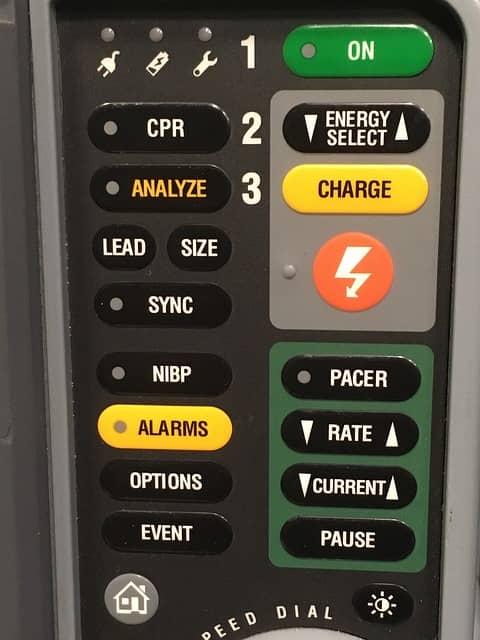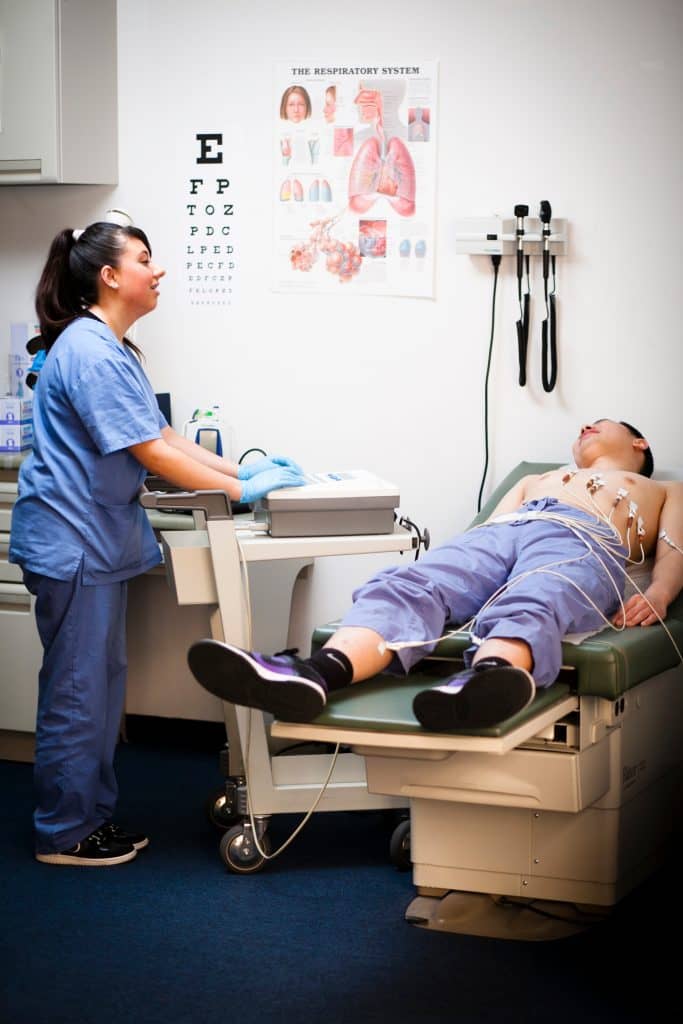Class Calendar | Call admissions on 415-943-2028
Get free phlebotomy training—exclusively for eligible Amazon Associates / Find MA training at BAMA
Class Calendar | Call admissions on 415-943-2028

While you’re working as an EKG Technician in healthcare facilities, one of your duties may be performing electrocardiogram testing for patients.
As you’re researching EKG Technician Programs, you may have seen that your training will involve practicing electrocardiograms, also known as EKG or ECG tests.
But what is an electrocardiogram?
Here are the basics.
During an electrocardiogram test, an EKG Technician will attach electrode patches to a patient’s chest, arms, and legs.
The test records the electrical activity of a patient’s heart beat.
The electrocardiogram will:
The electrocardiogram measures how long an electrical wave takes to pass through the heart. Normal, slow, fast, or irregular intervals can then be recorded.

Additionally, the amount of electrical activity passing through the patient’s heart muscle shows if parts of the heart are too large or are overworked.
An electrocardiogram takes between five-to-ten minutes to complete, which includes the EKG Technician setting up the procedure. The electrocardiogram is painless for patients and the electrocardiography recording takes just a few seconds to complete.
Fun Fact: Willem Einthoven, a Dutch doctor and physiologist, invented the first practical electrocardiogram in 1903. He went on to receive the Nobel Prize in Medicine in 1924 for the discovery.
"*" indicates required fields
© 2024 BAMA Institute. All Rights Reserved. Website by WindsAndWater